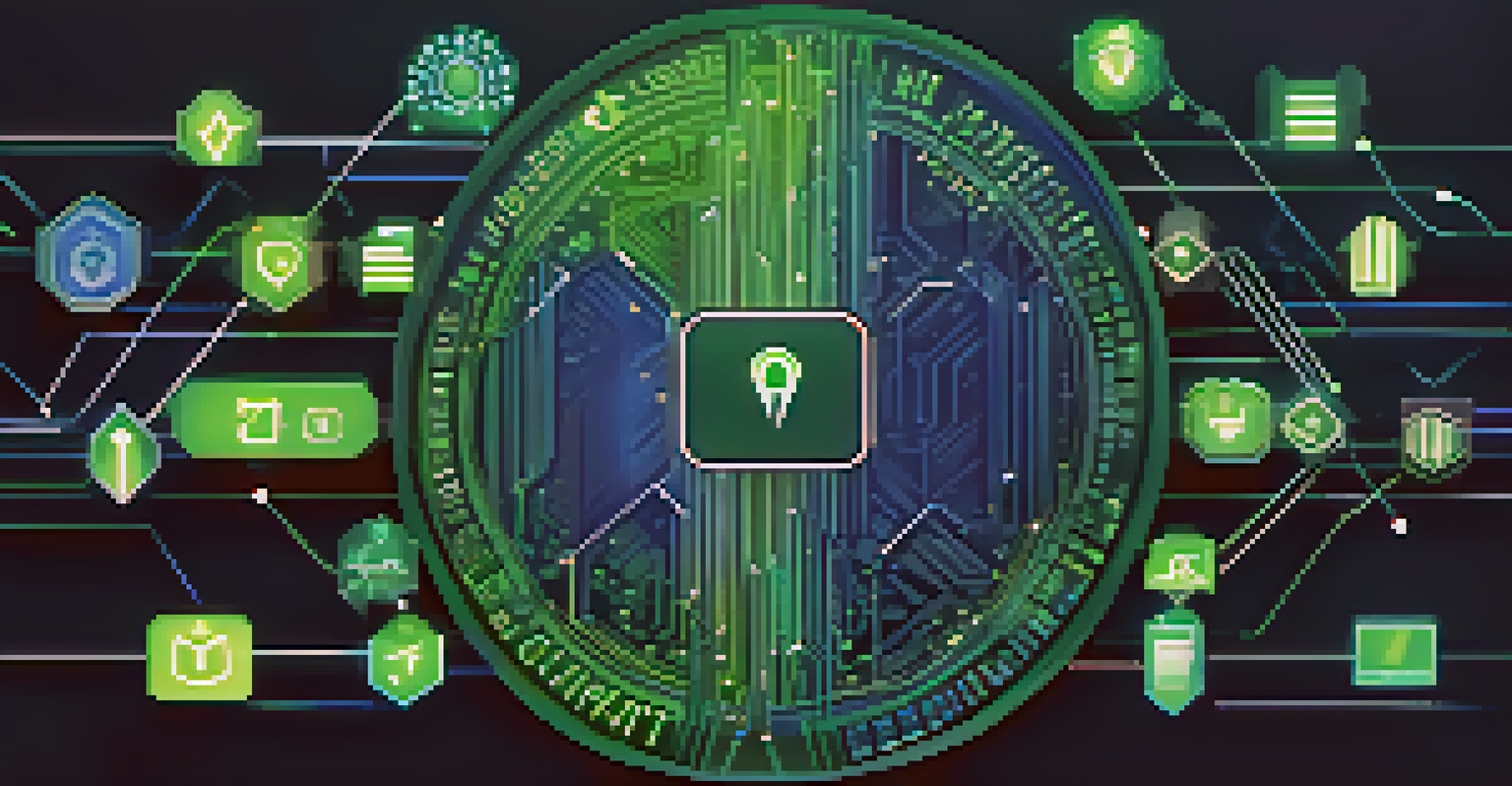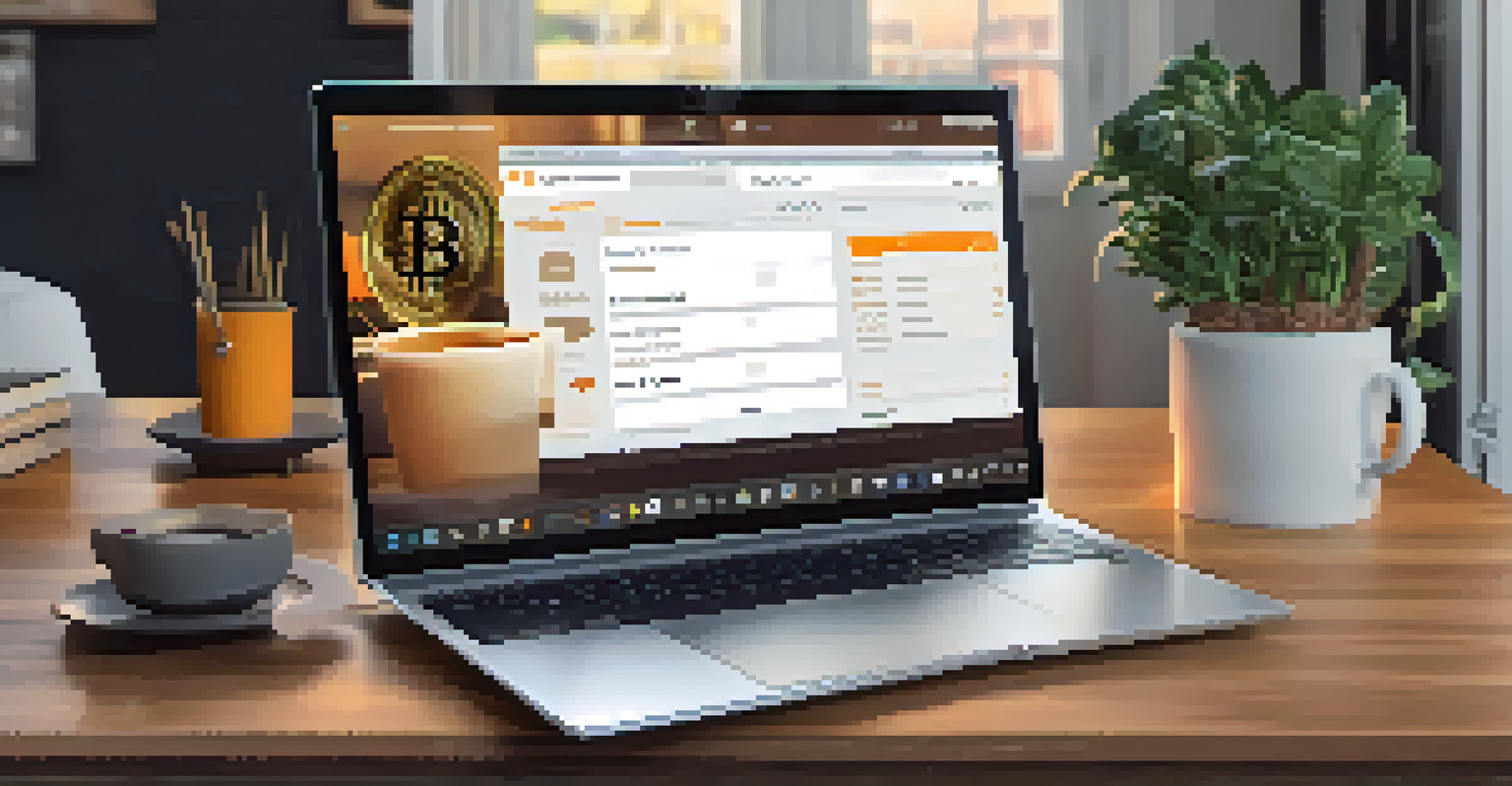Choosing Secure Bitcoin Exchanges: A Guide for Users

Understanding Bitcoin Exchanges: What You Need to Know
Bitcoin exchanges are platforms where you can buy, sell, or trade Bitcoin for other cryptocurrencies or fiat currencies. Think of them as digital marketplaces where you can swap your cash for Bitcoin or vice versa. Understanding the types of exchanges—centralized, decentralized, and peer-to-peer—is crucial for making informed decisions.
In investing, what is comfortable is rarely profitable.
Centralized exchanges are the most common, where a third party facilitates transactions. While they offer convenience, they can also be targets for hackers. Decentralized exchanges, on the other hand, allow users to trade directly with each other, providing more privacy but often at the cost of usability and liquidity.
Before diving into trading, familiarize yourself with these concepts and consider what fits your trading style and security needs best. This foundational knowledge will guide you as you search for a secure exchange.
Researching Reputation: Trustworthiness Matters
The reputation of an exchange is pivotal in ensuring a secure trading environment. Start by checking online reviews and user experiences; platforms like Reddit and Trustpilot can provide insights from real users. A good reputation often indicates a history of security and customer satisfaction.

Additionally, look for exchanges that have been in the market for a while. Established exchanges tend to have more robust security measures in place, as they’ve had time to learn from past incidents. However, reputation can be subjective, so it's wise to cross-reference multiple sources.
Prioritize Security Features
Look for exchanges with two-factor authentication and cold storage to safeguard your assets against hacks.
Remember, just because an exchange has a shiny website doesn’t mean it’s trustworthy. Take your time to research, as this step can save you from potential losses in the long run.
Security Features: Look for Robust Safeguards
When evaluating a Bitcoin exchange, security features should be at the forefront of your criteria. Look for exchanges that offer two-factor authentication (2FA), which adds an extra layer of security by requiring a second form of verification. This can be a text message or an app-generated code.
The best way to predict the future is to create it.
Additionally, consider exchanges that store the majority of their assets in cold storage, meaning they are kept offline and away from potential online threats. This significantly reduces the risk of hacks, as it’s tougher for cybercriminals to access these funds.
Lastly, always check if the exchange has insurance policies in place to cover potential losses due to breaches. This can provide peace of mind, knowing that your assets are protected even in the unlikely event of a security incident.
Regulatory Compliance: Know the Legal Landscape
Regulatory compliance is a crucial aspect of a secure Bitcoin exchange. Make sure to choose exchanges that adhere to the laws and regulations of their operating countries. This not only ensures they follow best practices but also protects you as a user.
Exchanges that are regulated are typically required to implement strict security measures and undergo regular audits. This oversight helps maintain a level of trust and accountability that is beneficial for users.
Understand Fees and Costs
Familiarize yourself with the various fees associated with trading to make cost-effective decisions.
Furthermore, understanding the regulatory environment can help you avoid potential legal issues down the line. Always check if the exchange is registered and compliant with relevant financial authorities.
User Experience: Importance of a Friendly Interface
A secure exchange is not just about hard security features; user experience plays a significant role too. Look for platforms that offer a user-friendly interface, making it easy to navigate through buying, selling, and managing your Bitcoin. A confusing platform can lead to mistakes, especially for beginners.
Additionally, consider the availability of customer support. A responsive support team can help you troubleshoot issues quickly, which is vital in the fast-paced world of cryptocurrency trading. Check if the exchange offers multiple channels for support, like live chat, email, or phone.
Lastly, test the platform with small transactions to ensure that it meets your expectations before committing larger amounts. A positive user experience can enhance your trading journey.
Fees and Charges: Understanding the Cost of Trading
When choosing a Bitcoin exchange, it’s essential to understand the fees and charges associated with trading. Different exchanges have varying fee structures, including trading fees, withdrawal fees, and deposit fees. These costs can add up, affecting your overall returns.
Take the time to compare these fees across multiple exchanges. Some may offer lower trading fees but higher withdrawal fees, while others may have a flat fee structure. Understanding these can help you choose the most cost-effective option for your trading habits.
Choose Trusted Bitcoin Exchanges
The reputation and longevity of an exchange are crucial for ensuring a secure trading environment.
Additionally, be wary of hidden fees that might not be immediately apparent. Always read the fine print to ensure you’re fully aware of the costs involved, and factor these into your decision-making process.
Final Thoughts: Making an Informed Decision
Choosing a secure Bitcoin exchange requires a blend of research, understanding, and attentiveness to detail. By considering factors like reputation, security features, regulatory compliance, user experience, and fees, you can make an informed decision that aligns with your needs.
Remember, the world of cryptocurrency is evolving rapidly, and staying informed is key. Regularly revisit your choices and stay updated on any changes in the regulatory landscape or security practices.

Ultimately, the right exchange for you is one that balances security, usability, and cost, ensuring a safe and enjoyable trading experience as you navigate the exciting world of Bitcoin.